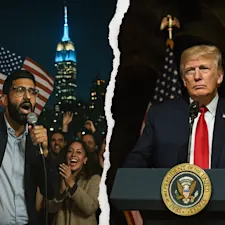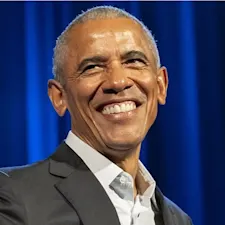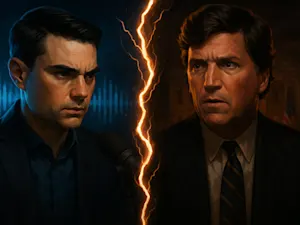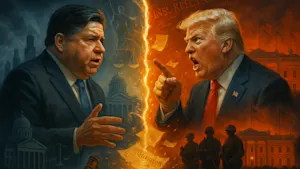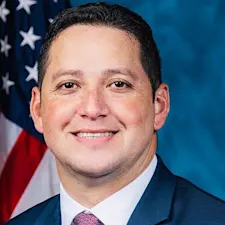
Shutdown Standoff: Thune Rejects Trump's Demands
John Thune, the senate majority leader, delivered a blunt message to President Donald Trump and his Republican allies: ending the Senate filibuster is simply not going to happen. This declaration came on a day when Trump was reportedly pushing hard at a White House breakfast for Republicans to scrap the filibuster rule, aiming to break the longest government shutdown in US history. The clash exposed a deep divide within the GOP, with some members clinging to the filibuster as a safeguard, while others, frustrated by legislative gridlock, are warming to the idea of its demise.
Trump's Push Meets Senate Reality
President Trump's call to "terminate the filibuster" was made with urgency, as reported by POLITICO. Speaking to Republican senators, he framed the filibuster as the key obstacle preventing the government from reopening and conservative priorities from advancing. Trump argued that without ending the filibuster, Republicans would be powerless to pass "common sense policies" amid what he described as obstruction by "crazed Democrat lunatics."
Yet, the math in the Senate tells a different story. Thune, returning from the White House meeting, was clear that the votes simply do not exist among Senate Republicans to change the rules. "I don't doubt that he could have some sway with members," Thune said, "But I know where the math is on this issue in the Senate, and ... it's just not happening," as reported by ABC News. His stance was echoed by other GOP senators who see the filibuster as a vital part of the Senate's design.
GOP Divisions Over the Filibuster
The filibuster requires 60 votes to pass most legislation, a rule that has long been a point of contention. Republicans hold 53 seats in the Senate, meaning they would need at least eight Democrats to join them to overcome the filibuster. So far, only a handful of Democrats and Independents have shown willingness to support government funding bills, leaving Republicans stuck in a legislative chokehold.
Some Republicans, like Senator Josh Hawley, have expressed openness to ending the filibuster if it means ending the shutdown and delivering aid to constituents. Hawley said he would choose "people eating" over defending "the arcane filibuster rules," as reported by ABC News. Similarly, Senator John Cornyn indicated he is "open to changing the filibuster," citing frustration with the inability to pass appropriations.
However, a significant faction of Republicans remains firmly opposed. Senator Thom Tillis, who has held his position on the filibuster for over a decade, said there is "nothing that could move me on the filibuster," as reported by ABC News. Senator John Kennedy called the filibuster "important," emphasizing its role in allowing the minority party to block bad ideas. Senator Mike Rounds described the Senate as designed to find "long-term, stable solution[s]" and expressed skepticism about abandoning the rule.
The Shutdown's Shadow
The government shutdown, now the longest in history at 38 days, looms large over the debate. Trump and some Republicans blame Democrats for the impasse, but the election results tell a more complicated story. Democrats scored victories in several key races, including in Virginia, a state with many federal workers who may have been affected by the shutdown.
Thune acknowledged the possibility that the shutdown hurt Republicans in Northern Virginia, a region with a high concentration of federal employees. "This is a community here, obviously, in Northern Virginia, that has a lot of federal workers. So it certainly could have been a factor in the elections," he said, as reported by ABC News. Yet, he also described the losses as "pretty much expected," suggesting the GOP faces broader challenges beyond the shutdown.
Institutional Norms vs. Political Pressure
The filibuster debate is more than a procedural dispute; it is an existential moment for the Republican Party. On one hand, Trump's push to end the filibuster reflects a desire to wield power unencumbered by minority obstruction. On the other, many Republicans see the filibuster as a critical tool to protect their interests when they are in the minority, which history suggests is likely to happen again.
Senator James Lankford summed up this tension, saying the Senate needs "a place in government where both sides have to talk to each other," which he believes is "good for the country long term," as reported by Reuters. This view contrasts sharply with Trump's framing of the filibuster as an obstacle to governance.
What's Next?
With the filibuster firmly entrenched for now, the focus shifts back to reopening the government. Thune emphasized that the priority should be ending the shutdown rather than changing Senate rules. "The focus should be on reopening the government," as reported by ABC News.
Democratic leaders seized on the election results to demand bipartisan negotiations. Senate Minority Leader Chuck Schumer called the election a "five-alarm fire for Donald Trump and Republicans" and urged Trump to meet with Democrats to end the shutdown, as reported by ABC News. House Democratic Leader Hakeem Jeffries joined the call, highlighting the "Republican health care crisis" as a key issue needing resolution.
For now, the filibuster remains a symbol of the Senate's complex balance between minority rights and majority rule. Whether Republicans will revisit the debate in the future remains uncertain, but the current moment reveals a party wrestling with its identity amid political frustration and institutional tradition.
If you are watching the Senate's next moves, expect a continued tug-of-war between those who want to preserve the filibuster as a safeguard and those who see it as a barrier to action. The shutdown's toll on the American public adds urgency, but the Senate's rules and the GOP's internal divisions ensure the debate will not be settled easily.
The question remains: will the filibuster survive this test, or will the pressure from Trump and frustrated Republicans eventually tip the scales? For now, John Thune's words stand as a clear warning — the votes just aren't there.
References: Thune says ending filibuster 'not happening' despite Trump's demands | Senate Republicans brush off Trump's push to end filibuster | Trump urges Republicans to kill filibuster, warning they'll lose if they don't






